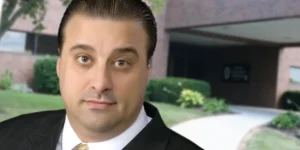I’m thinking about the two sides of me. There is the person I am and the person I want to be. Those two people are always at war with each other inside my brain. On my good days, I somehow manage to act like the person I want to be, but have a little stress seep into my life or a conflict with someone, and the person I actually am shows up. I turn into something I don’t like. When the me that I actually am shows up and shows out … well, few things are more frustrating or disappointing.
I’m guessing I’m not alone in this. The fact is, we all live divided lives. We all know that deep pain and disappointment of finding out all over again that we are really two people fighting inside the same body for control. Knowing what we know about ourselves, we ought to be all the more awe-struck by the glorious theology beneath the Christmas story.
What we celebrate at Christmas is the fact that God came to us in human form. Theologically, this goes much deeper than a picture of a baby in a manger. The technical term — hypostatic union — wipes away the warmth of that image but invites us to consider the incredible gift of this cosmic reality.
The hypostatic union. Brothers and sisters, this is good theology. This is the term for the perfect melding of divinity with humanity. He who was fully God became fully human — two distinct natures in one Person. Jesus Christ held together both the power of his divinity and the experience of his humanity … perfectly. He entered in, in order to fully identify with us and became the first of a new humanity, something completely different that made everything new for everyone else.
His birth did not erase the fact that he was the Word who spoke all creation into existence in Genesis chapter 1. His death did not negate the fact that he was the Warrior who battled with death and won in Revelation chapter 19.
Fully God, fully man. If you slight him on the God side, you’re a liberal who tends to focus on his teachings and example without embracing his cosmic power. If you slight him on the human side, you’re in danger of unitarianism — unable to accept the unique nature of the Son or his humanity in the temptations, his frustration with fallenness, his suffering on the cross. Jesus resisted sin, because he felt it. He loved his enemies as enemies because he sensed their opposition. He forgave people because he experienced the grief of their sins against God. He experienced life as a human, but perfectly.
And because he has made perfect peace with these two parts of himself, he is able — Spirit-Man — to offer us both pattern and permission to find peace with our two halves. Jesus has accomplished in his body through the perfect union of divinity and humanity what we all long for most: peace.
In other words, Jesus is the answer to that fight that goes on inside us. The one answer with power to speak peace into the divided mess that is us is the perfect union of Father with Son — of deity with humanity. Because he has broken through that barrier for us and now lives in perfect unity within himself, Jesus — fully God, fully man — has carved out our pathway to peace.
So what do we do with this bit of theology? We use it. We trust it and then we live it. We start acting as if Christ’s work is sufficient to heal our divided selves. Even if we don’t feel it we can “act as if.” We can begin to practice the peace that Jesus has shown us in himself. We can act as if our biggest internal battles are won. Act as if our recovery is complete, even if we’re still on the journey. Act as if our relationships are healed, even if they are still in process. Act as if our physical health is improving, as if our depression is healing, as if our finances are stabilizing. Act as if we care, as if we need community, as if we have a heart for others … even if we are still under construction.
This is the gift of good theology. It teaches us who we are, and then it shows us how to act.
And that makes Jesus — Word Become Flesh — all the more worthy of our worship.








